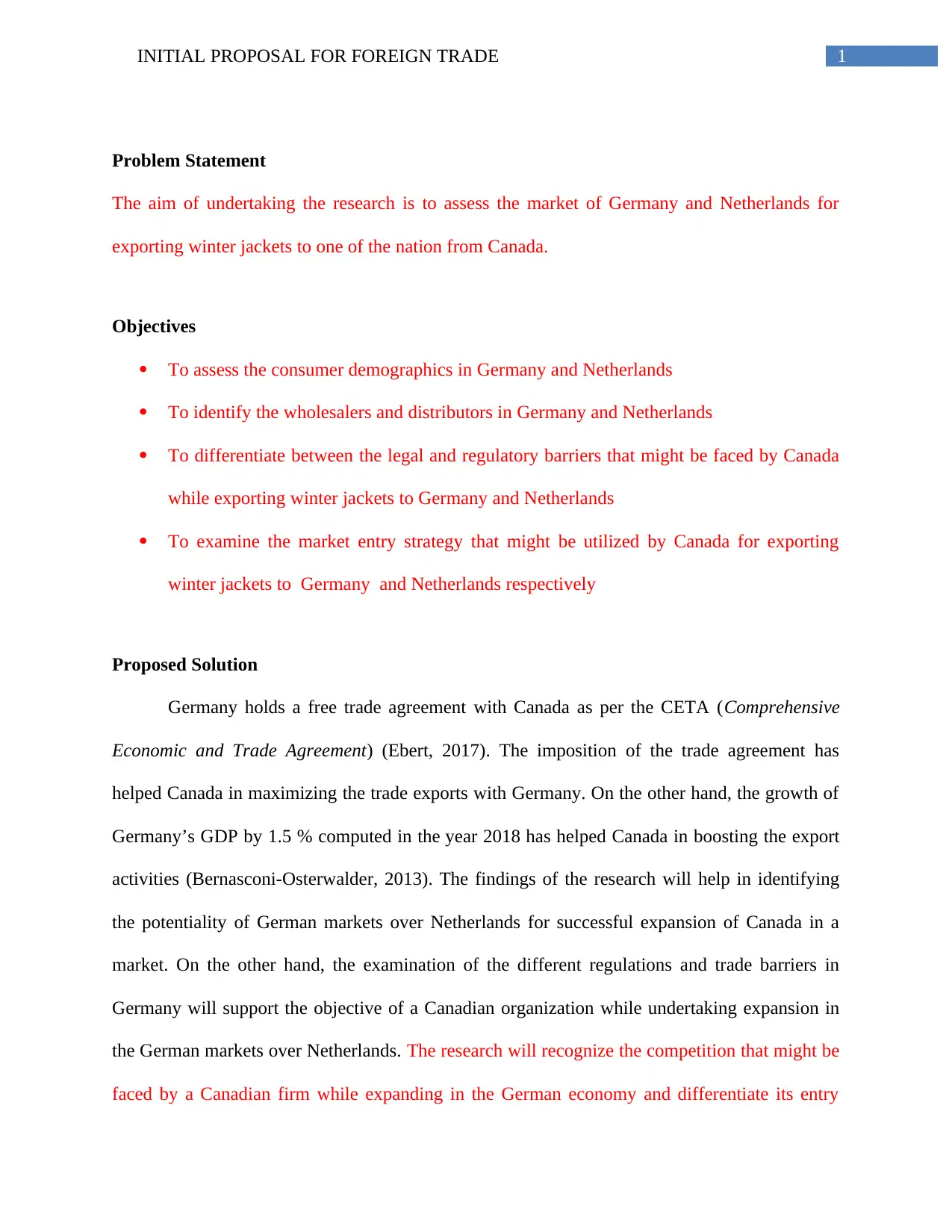Initial Proposal: Exporting Winter Jackets to Germany or Netherlands
VerifiedAdded on 2023/04/23
|4
|435
|496
Project
AI Summary
This project outlines an initial proposal for foreign trade, specifically examining the potential of exporting winter jackets from Canada to either Germany or the Netherlands. The proposal aims to assess consumer demographics, identify wholesalers and distributors, differentiate between legal and regulatory barriers, and examine market entry strategies for both countries. It highlights Germany's free trade agreement with Canada under CETA and its GDP growth as factors favoring export activities. The research intends to identify the potential of the German market over the Netherlands, recognize competition, and determine a suitable market entry mode. The evaluation of economic scenarios and trade barriers will assist a Canadian organization in making informed decisions about exporting winter jackets to these markets. Desklib is your go-to platform for accessing a wealth of study resources, including past papers and solved assignments.
1 out of 4









![[object Object]](/_next/static/media/star-bottom.7253800d.svg)